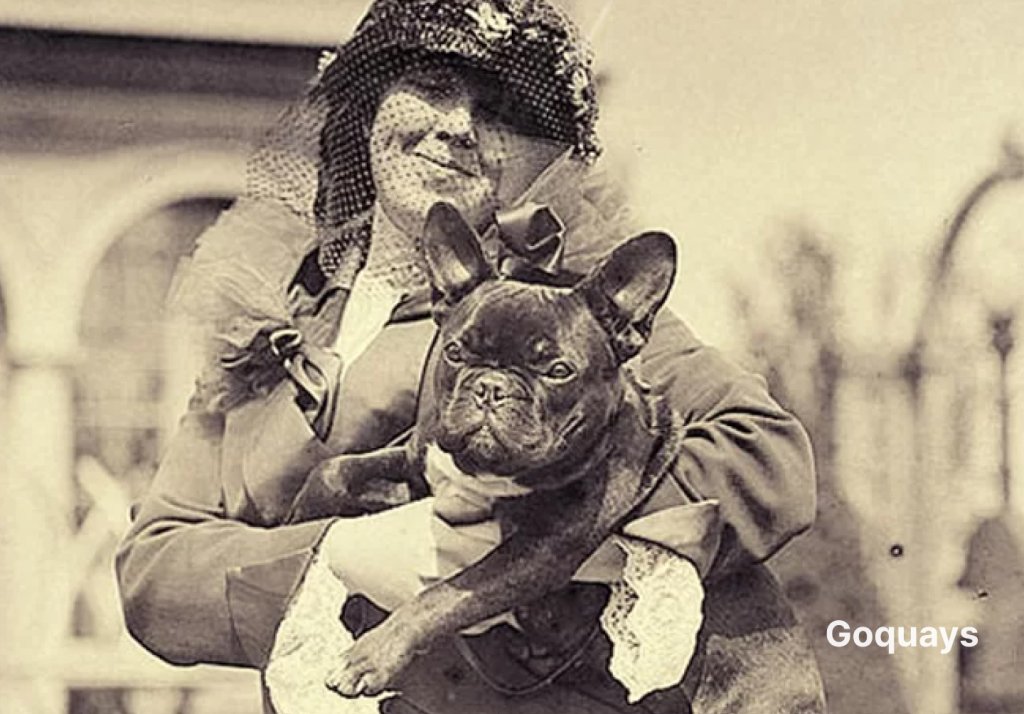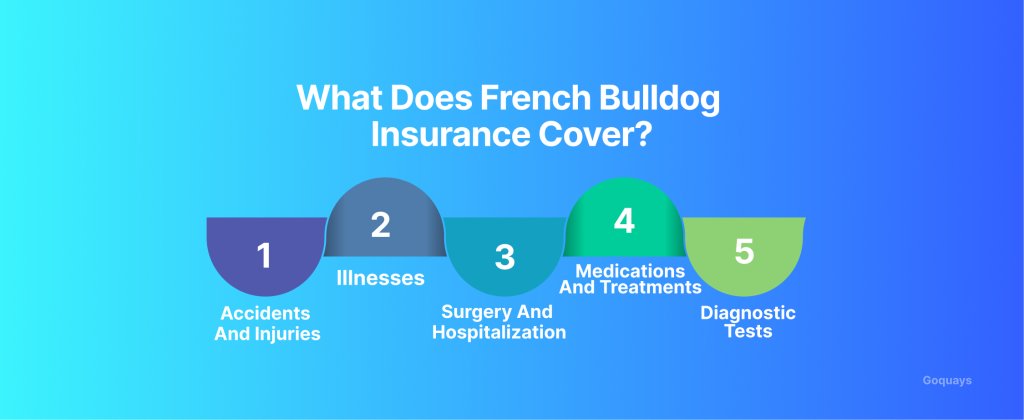French Bulldogs are charming, affectionate, and full of personality. They’ve become one of the most popular dog breeds worldwide, but they also come with unique needs, including potential health concerns. That’s where French Bulldog insurance becomes important. Owning a Frenchie means being prepared for both the joys and challenges they bring.
Vet bills can be expensive, and French Bulldogs are prone to certain medical conditions. Many owners find that pet insurance gives them peace of mind, knowing they won’t have to choose between their dog’s health and their finances. Insurance can help cover unexpected vet costs, including surgeries, medications, and ongoing treatments.
When considering French Bulldog insurance, it’s important to know what’s covered. Some policies include hereditary conditions like breathing problems and spinal issues, while others may exclude pre-existing conditions. The cost of insurance depends on factors like age, location, and coverage type. While premiums may seem high, they can save you thousands in the long run.
French Bulldogs are more than just pets—they’re family. Whether you’re thinking of getting a Frenchie or already have one, knowing about their history, personality, and care needs will help you provide the best life for them.
What Were French Bulldogs Originally Bred For?

Despite their name, French Bulldogs originated in England. In the 19th century, lace workers in Nottingham bred small bulldogs as companion dogs. When these workers moved to France for better opportunities, they took their little bulldogs with them.
In France, the breed became incredibly popular, especially among working-class citizens, artists, and even Parisian high society. Their compact size, affectionate nature, and signature bat-like ears made them stand out. Unlike larger bulldogs bred for bull-baiting or guarding, French Bulldogs were always intended to be companion animals.
They were known as lap dogs who thrived on human interaction. Over time, their reputation as a fashionable and loyal breed grew. Even today, they remain one of the most beloved companion dogs in the world.
Their history as lap dogs explains their strong attachment to their owners. Frenchies crave attention and don’t do well when left alone for long hours. If you’re considering getting one, be prepared to give them plenty of love and companionship.
How Do French Bulldogs Compare to Other Breeds?
French Bulldogs have a unique mix of traits that set them apart from other small dog breeds. Here’s how they compare to some of the most popular companion dogs:
- Compared to English Bulldogs – Frenchies are smaller and more active. They have fewer wrinkles and require less space, making them better suited for apartment living.
- Compared to Pugs – Both breeds are playful, but French Bulldogs tend to be more independent and stubborn. Pugs are generally more energetic and excitable.
- Compared to Boston Terriers – Boston Terriers are more athletic and require more exercise. French Bulldogs are more laid-back and prefer short bursts of playtime.
One key thing to note is that French Bulldogs are brachycephalic, meaning they have short noses that can cause breathing issues. Unlike some other breeds, they overheat quickly and need extra care in warm weather.
If you’re looking for a dog that is low-energy but still playful, a Frenchie could be a perfect match. Just remember that they require special attention due to their breathing and mobility issues.
Is a French Bulldog Right for You?

French Bulldogs are adorable, affectionate, and full of character, but they aren’t the right breed for everyone. Before bringing one home, it’s important to consider their needs, personality, and care requirements.
Frenchies thrive on human companionship. They hate being left alone for long hours and can develop separation anxiety if they don’t get enough attention. If you work long hours or travel often, a French Bulldog may not be the best choice.
They also have specific health concerns, including breathing problems, skin allergies, and spinal issues. This means regular vet visits and potential medical expenses. French bulldog insurance can help cover these costs, but you should still be prepared for unexpected health issues.
If you want a dog that’s low-energy, affectionate, and great for small spaces, a Frenchie might be perfect for you. Just make sure you’re ready for their unique needs and possible health concerns.
Why Do French Bulldogs Need Insurance?

French Bulldogs are lovable, affectionate companions, but they come with serious health risks. Their flat faces make them prone to breathing problems, their compact bodies lead to spinal issues, and their sensitive skin makes them susceptible to allergies. These health concerns often result in expensive vet bills, making insurance a crucial investment.
Many Frenchie owners don’t realize just how costly medical care can be until they face an emergency. Surgeries like Brachycephalic Obstructive Airway Syndrome (BOAS) correction can cost anywhere from £2,000 to £5,000. Treatments for spinal conditions like Intervertebral Disc Disease (IVDD) can exceed £7,000. Even routine allergy treatments and medication can add up to hundreds of pounds a year.
Consider Emily’s story. She adopted her French Bulldog, Benny, thinking he was a healthy pup. But by the time Benny turned two, he was struggling to breathe and needed BOAS surgery, which cost over £2,500. A year later, he developed severe skin allergies, requiring ongoing vet visits and medication, adding another £800 to her expenses. Fortunately, Emily had insurance, so she only had to pay a small portion of these costs. Without it, she would have been thousands of pounds out of pocket.
Owning a French Bulldog means being prepared for potential health issues. While insurance doesn’t prevent medical conditions, it does ensure that your dog gets the best possible care without breaking the bank. You never want to be in a situation where you have to choose between your finances and your dog’s health. Insurance gives you peace of mind, knowing you can afford the treatments your Frenchie may need.
How Much Does French Bulldog Insurance Cost?
The cost of French Bulldog insurance varies based on several factors, but you can expect to pay between £40 and £100 per month. While this may seem like a high price to pay, it is far less than what you could end up spending on vet bills if your Frenchie develops health problems.
Several factors affect the cost of pet insurance, including:
- Your dog’s age – Older Frenchies have a higher risk of developing health conditions, so premiums increase as they age.
- Pre-existing conditions – If your Frenchie already has a diagnosed condition before getting insured, the policy won’t cover treatment for it.
- Coverage type – Comprehensive plans that cover accidents, illnesses, and ongoing conditions cost more but offer better protection.
- Your location – Vet costs vary depending on where you live. Urban areas tend to have higher veterinary fees, leading to higher insurance premiums.
- Deductibles and payout limits – Some policies require you to pay a certain amount before insurance kicks in. Others have annual or lifetime payout limits.
It’s easy to think that skipping insurance will save you money, but a single emergency vet visit can cost over £1,500, while major surgeries can exceed £5,000. The cost of ongoing treatments for chronic conditions like allergies or joint problems can also add up over time.
Choosing a good insurance plan means you won’t have to worry about unexpected vet bills. Instead, you’ll have the peace of mind that your Frenchie can get the best care without putting a strain on your finances.
What Does French Bulldog Insurance Cover?

A good pet insurance plan provides financial protection against many common medical expenses. While coverage varies between providers, most policies include:
- Accidents and injuries – If your Frenchie breaks a bone, gets hit by a car, or suffers an injury, insurance helps cover emergency treatment.
- Illnesses – Conditions like BOAS, skin allergies, and ear infections are often covered, depending on the policy.
- Surgery and hospitalization – Many Frenchies require surgery at some point, whether for breathing problems, spinal issues, or other medical conditions. Insurance helps with these costs.
- Medications and treatments – Prescription drugs, physical therapy, and other medical treatments are often included in comprehensive plans.
- Diagnostic tests – Blood tests, X-rays, MRIs, and other diagnostic procedures can be expensive, but a good policy will cover them.
Some insurance plans also offer optional extras like behavioral therapy, dental care, and alternative treatments such as acupuncture or hydrotherapy. These can be useful if your Frenchie needs ongoing care beyond standard veterinary treatments.
It’s important to read the fine print when choosing a policy. Some plans offer extensive coverage, while others may exclude certain conditions or have low payout limits. The best insurance for your French Bulldog is one that covers the specific health risks associated with the breed.
What’s Not Covered by French Bulldog Insurance?
While pet insurance provides valuable financial protection, it doesn’t cover everything. Knowing what’s excluded from your policy can help you avoid surprises when you need to make a claim. Most insurers do not cover:
- Pre-existing conditions – If your Frenchie has a health issue before you take out insurance, treatments for that condition won’t be covered.
- Routine checkups and vaccinations – Standard vet visits, flea and tick prevention, and vaccinations usually aren’t included unless you choose a premium plan.
- Cosmetic procedures – Procedures like ear cropping or tail docking (which are unethical and illegal in many places) are not covered.
- Breeding-related costs – If you plan to breed your French Bulldog, costs related to pregnancy, C-sections, and breeding complications are usually excluded.
- Dental care – Some plans only cover dental issues caused by injury, not routine cleanings or dental diseases.
Understanding these exclusions will help you choose the right policy and avoid unexpected expenses. Always read the details of a plan before signing up to make sure it meets your needs.
How to Choose the Best French Bulldog Insurance

Not all pet insurance policies are the same. Choosing the right one for your Frenchie requires careful consideration. Here’s what to look for when selecting a policy:
- Comprehensive coverage – The best insurance covers breed-specific conditions like BOAS, IVDD, and allergies. Ensure your plan includes these.
- High payout limits – Some policies cap how much they’ll pay per year or per condition. A higher limit means better coverage for major health issues.
- Lifetime vs. time-limited cover – Lifetime policies provide ongoing coverage for chronic conditions, while time-limited plans only cover conditions for a set period.
- Reimbursement rates and deductibles – Check how much of the bill your insurer will cover and what you’ll have to pay out of pocket.
- Customer reviews and reputation – Look for insurance providers with positive reviews and a good reputation for processing claims efficiently.
Choosing the best insurance means finding a balance between affordability and coverage. A cheap policy might not offer enough protection, while an expensive one might have unnecessary extras. Take your time to compare options and select a plan that suits your Frenchie’s specific needs.
How much does dog grooming insurance cost?

The cost of dog grooming insurance depends on factors like business size, coverage level, and location. On average, policies range from £300 to £1,500 per year. Your specific premium will vary based on the risks involved in your business.
If you run a small, home-based grooming service, your insurance costs may be lower. Mobile groomers and salons with employees usually pay higher premiums because of added risks. Transporting pets, using mobile equipment, and managing staff all increase the chances of accidents.
The type of coverage you choose also affects the price. Basic policies covering public liability and pet injuries cost less. More comprehensive plans, which include business equipment protection, employer’s liability, and care, custody, and control coverage, are more expensive.
Some insurers offer flexible plans, allowing you to adjust coverage based on your business needs. Paying annually instead of monthly may also reduce overall costs. Comparing quotes from different providers helps you find the best deal while ensuring your business has the right protection.
Is French Bulldog Insurance Worth It?

The short answer is yes. While monthly premiums may seem expensive, they are far more affordable than paying out-of-pocket for expensive vet treatments. French Bulldogs are prone to serious health conditions, and without insurance, you could face thousands of pounds in unexpected medical expenses.
Imagine needing to pay £3,000 for BOAS surgery or £7,000 for spinal surgery. These costs can be overwhelming, but with insurance, you’ll only need to pay a fraction of the bill. Having a policy in place means you can always provide the best care for your Frenchie without worrying about the financial burden.
French Bulldogs aren’t just pets; they’re family. If you want to ensure that your Frenchie gets the best medical care without financial stress, investing in pet insurance is one of the smartest decisions you can make.
Are French Bulldogs Good for Families?

Yes! French Bulldogs are excellent family pets. They are affectionate, gentle, and love being around people. Unlike some small breeds that can be fragile or nervous around children, French Bulldogs are sturdy and patient with kids.
Frenchies love attention and enjoy being part of family activities. They don’t require long walks or excessive exercise, making them great for busy families. Their playful and goofy personalities also make them a fun addition to any household.
The only downside is that French Bulldogs can become too attached to their owners. If they aren’t properly socialized, they may struggle when left alone. If you have a busy household where someone is usually home, a Frenchie will fit right in.
Are French Bulldogs Well-Behaved?

French Bulldogs have sweet and friendly personalities, but they can also be stubborn. Training a Frenchie requires patience and consistency. They respond best to positive reinforcement like treats and praise.
Frenchies love their owners but may ignore commands if they don’t feel like listening. They aren’t as eager to please as a Labrador or Golden Retriever, so you’ll need to make training fun and engaging.
That being said, French Bulldogs are generally well-mannered. They don’t have a strong prey drive, so they’re unlikely to chase small animals. They also don’t bark excessively, making them great for apartments.
Do French Bulldogs Bark a Lot?
French Bulldogs are not known for excessive barking. They may bark to alert you of something unusual, but they usually aren’t yappy like some other small breeds.
That being said, barking habits depend on the individual dog. Some Frenchies may bark more than others, especially if they’re bored or anxious. If your Frenchie barks a lot, they may need more mental stimulation or training.
Since they are social dogs, they can develop separation anxiety, which may lead to barking when left alone. Ensuring they have plenty of company and stimulation can help prevent excessive barking.
Are French Bulldogs High-Maintenance?
French Bulldogs are low-maintenance in some ways and high-maintenance in others. They don’t require much exercise, but they do need special care due to their health issues and grooming needs.
Their short coats are easy to manage, but their skin folds require regular cleaning to prevent infections. They also have sensitive skin and may develop allergies, requiring special shampoos or dietary changes.
One of the biggest concerns is their breathing issues. Because they are a brachycephalic breed, they can struggle in hot weather and may require extra precautions. They also tend to have digestive problems, so feeding them a balanced diet is essential.
Vet bills for French Bulldogs can be expensive, which is why many owners choose to get pet insurance. It helps cover medical costs and ensures that you can provide the best care for your dog.
What to Consider Before Getting a French Bulldog
Before bringing a Frenchie home, consider the following:
- Can you afford their medical care? French Bulldogs are prone to breathing problems, allergies, and spinal issues. Vet bills can add up, and insurance is highly recommended.
- Do you have time for them? Frenchies hate being alone and need companionship. If you work long hours, they may struggle with separation anxiety.
- Do you live in a hot climate? French Bulldogs are sensitive to heat and require air conditioning in warm weather.
- Are you prepared for their stubbornness? Training takes patience, and they respond best to positive reinforcement.
French Bulldogs are loving, playful, and great companions, but they require responsible ownership. If you can meet their needs, they will bring endless joy into your life.
Caring for Your French Bulldog
French Bulldogs are affectionate, playful, and love human interaction. They thrive in a family environment but require proper care to stay happy and healthy.
- Feeding and Nutrition: A balanced diet is crucial for your Frenchie’s health. They are prone to obesity, so portion control is important. Many French Bulldogs have food allergies, with common triggers like chicken, beef, and grains. Choosing high-quality food with protein and healthy fats can prevent health issues. Puppies need 3-4 meals a day, while adults should eat twice daily. Fresh water is essential, especially in hot weather.
- Grooming: Frenchies may have short fur, but they shed year-round and need regular brushing. Their facial wrinkles trap dirt and moisture, so cleaning them daily prevents infections. Their large ears also collect dirt, requiring weekly cleaning. Since they have flat faces, frequent baths can irritate their skin, so a bath every 1-2 months is ideal. Regular nail trimming and using a soft-bristle brush help maintain their coat and hygiene.
- Exercise and Training: French Bulldogs are not high-energy dogs, but they still need daily activity. Short walks and indoor play sessions keep them fit without overexertion. Due to their breathing issues, avoid intense exercise and walks in hot weather. Swimming is not safe for Frenchies, so always use a life jacket near water. Training requires patience, as they can be stubborn. Positive reinforcement with treats and praise works best. Early training and socialization help them grow into well-behaved adult dogs.
4. Temperament and Behavior: French Bulldogs are affectionate, loyal, and thrive on companionship. They love attention and bond closely with their owners. While playful and entertaining, they can be stubborn, so consistent training is key. With proper care, your Frenchie will be a loving and happy companion.
Can French Bulldogs Swim?

Most French Bulldogs cannot swim well because of their body structure. They have short legs, a heavy chest, and a flat face, which make it hard for them to stay afloat. Unlike breeds built for swimming, Frenchies struggle in the water and can quickly become exhausted.
If your Frenchie loves water, always use a dog life jacket. Choose one with a sturdy handle so you can lift them out of the water if needed. Never leave them unattended near pools, lakes, or the ocean. Even if they seem to enjoy paddling, they tire easily and can sink quickly.
Some French Bulldogs enjoy playing in shallow water or splashing around, which is a safer way for them to cool off. If you take your Frenchie near water, always keep a close eye on them to prevent accidents.
Common Behavior Problems in French Bulldogs
French Bulldogs are charming and affectionate, but they do have some common behavior issues. Their stubbornness can make training a challenge, so patience and consistency are key.
One of the biggest behavior problems is separation anxiety. Frenchies love human interaction and can become anxious when left alone for too long. This can lead to destructive behaviors like chewing furniture or excessive barking. If you work long hours, consider hiring a pet sitter or providing interactive toys to keep them occupied.
French Bulldogs can also be territorial. They may bark at strangers or other dogs, especially if they were not socialized properly as puppies. Early socialization helps them feel comfortable around new people and pets.
Some Frenchies can be demanding and pushy when they want attention. If they learn that barking or whining gets them what they want, they will keep doing it. Setting boundaries and rewarding good behavior helps them develop better habits.
Despite these challenges, French Bulldogs are loving companions. With the right training and care, they can be well-behaved and happy members of your family.
Common Health Issues in French Bulldogs
French Bulldogs are adorable and affectionate, but they are prone to several health problems due to their unique physical features. If you own a Frenchie, knowing these health risks can help you provide the best care.
- Breathing Difficulties (BOAS)
One of the most well-known health issues in French Bulldogs is Brachycephalic Obstructive Airway Syndrome (BOAS). Their short, flat snouts make breathing harder, especially in hot weather or during exercise. Some Frenchies snore loudly, wheeze, or struggle to breathe even when resting.
- Skin Infections and Allergies
Frenchies have wrinkled skin, which can trap moisture, dirt, and bacteria, leading to skin infections. They are also prone to allergies, which cause itching, rashes, and hair loss.
- Bone and Joint Problems
French Bulldogs have a compact, muscular build, but their bone structure makes them prone to joint issues like hip dysplasia and patellar luxation (slipping kneecap). These conditions cause pain, limping, and difficulty walking.
- Corneal Ulcers
Because of their bulging eyes, Frenchies are more likely to develop corneal ulcers from scratches, dry eyes, or infections. If your dog is squinting, rubbing their eyes, or has eye discharge, they may have an ulcer.
- Dystocia (Difficulty Giving Birth)
French Bulldog puppies have large heads and narrow hips, making natural birth risky. Most Frenchie mothers require a C-section to deliver their puppies safely.
- Intervertebral Disc Disease (IVDD)
Frenchies have a higher risk of spinal problems, including IVDD, which occurs when the discs in their spine become damaged. This can cause pain, weakness, or even paralysis.
These health issues require regular vet checkups, which is why French Bulldog insurance can help manage medical costs and ensure your pup gets the best care.
Final thoughts
French Bulldog insurance isn’t just an extra expense—it’s a smart way to protect your pup and your wallet. With their increased risk of breathing problems, skin conditions, and spinal issues, vet bills for Frenchies can add up fast. A single surgery or emergency visit can cost thousands, making insurance a lifesaver when unexpected health issues arise.
By choosing the right policy, you ensure that your Frenchie gets the best possible care without financial stress. Look for coverage that includes breed-specific conditions, high payout limits, and lifetime options for ongoing health concerns. While premiums may seem costly, they are nothing compared to the potential costs of treating a serious medical condition.
At the end of the day, French Bulldog insurance gives you peace of mind. It allows you to focus on what really matters—keeping your furry companion happy, healthy, and by your side for as long as possible.





